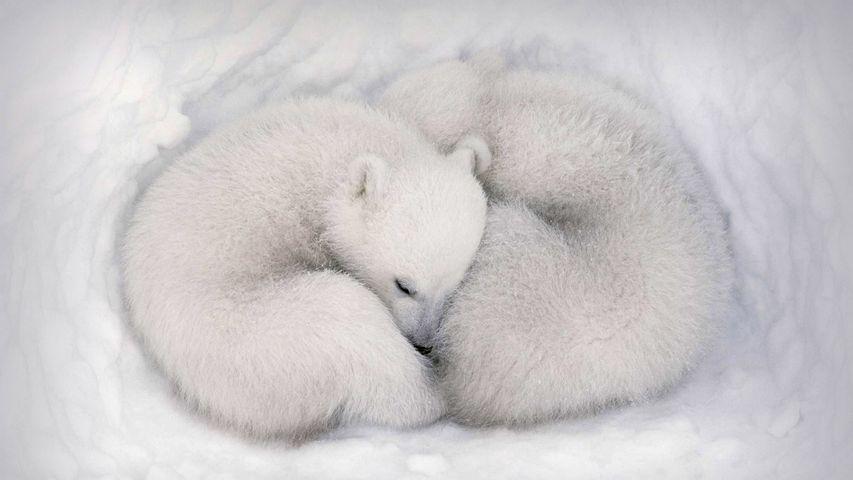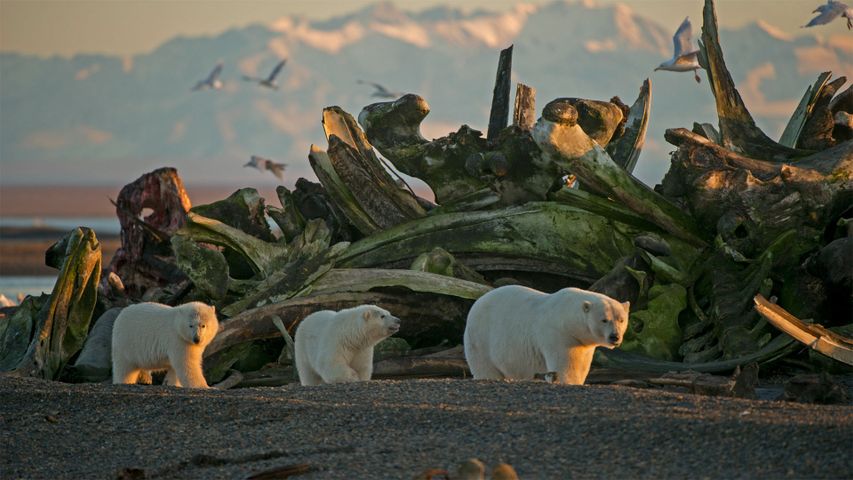Polar bear mother with cubs in Wapusk National Park, Manitoba, Canada
© Andre Gilden/Minden Picture
A day for those who rule the north. Polar bears
Today we celebrate International Polar Bear Day to spotlight efforts that protect these charismatic but vulnerable animals. Perhaps no other creature is as emblematic of climate change as polar bears, the apex predator of the Arctic Circle. As the planet warms, their fragile habitat shrinks.
In winter, after the ice floes have diminished, making hunting more difficult, a pregnant female polar bear will dig a maternity den, usually in a snowdrift. She lies dormant there through the season before giving birth sometime between November and February. The cubs are born blind and weigh just about a pound with only a light layer of fur. In the cold Arctic winter, the newborns would suffer outside the protection of the den, so they rest there with their mom, growing rapidly on their mother's fat-rich milk until the young family breaks open the entrance to the den sometime in early spring.
This mother and her cubs are enjoying a spring day in Manitoba, Canada, in Wapusk National Park, where the Arctic tundra yields to a boreal forest. Wapusk is one of the largest polar bear denning areas in the world and is critical to the survival of a population of about 1,000 bears who roam the western side of Hudson Bay.
Related Images
Bing Today Images
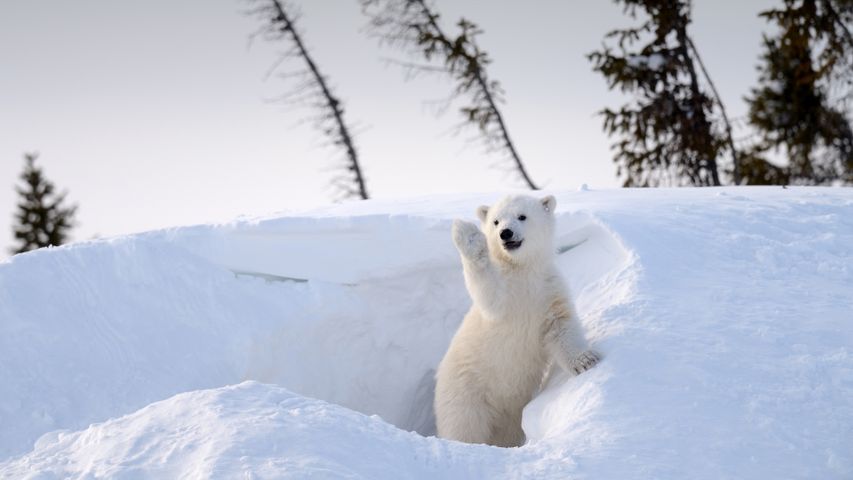
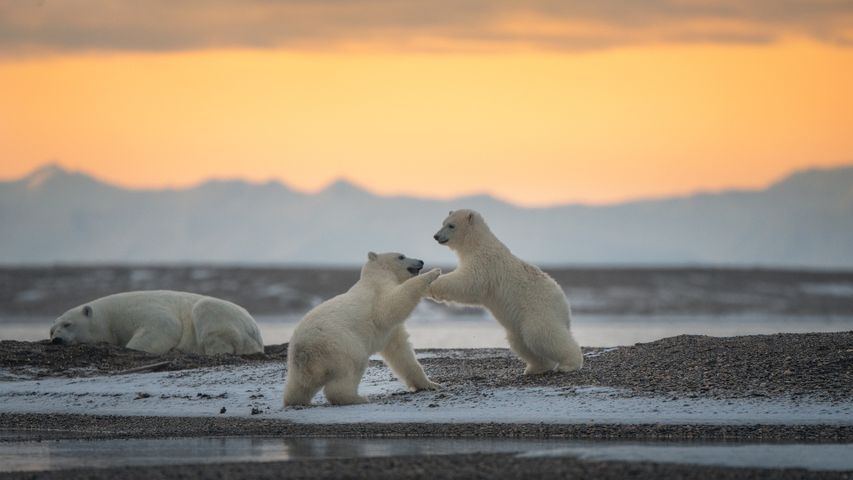
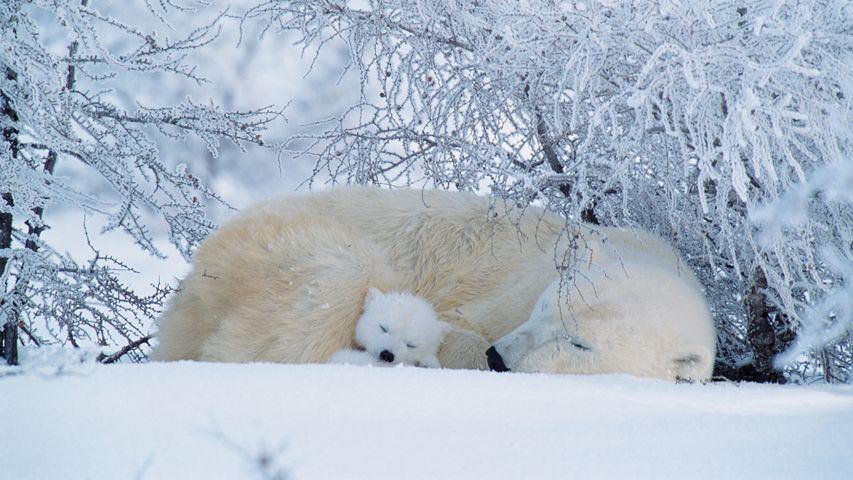
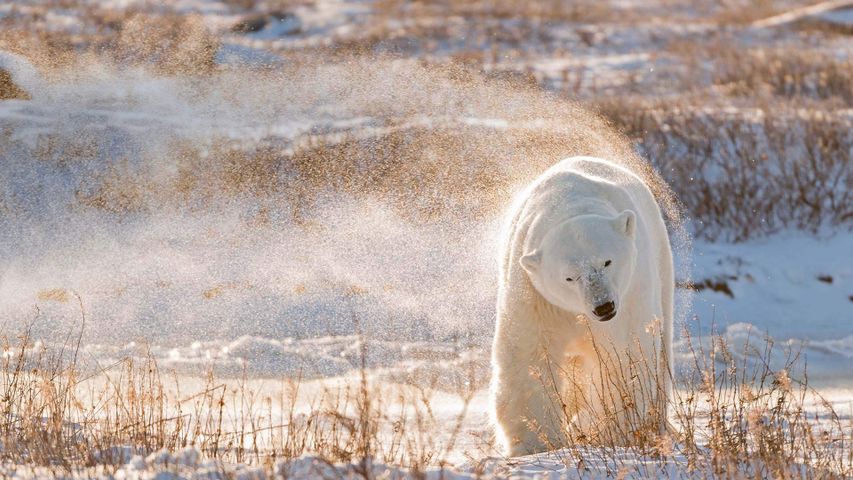
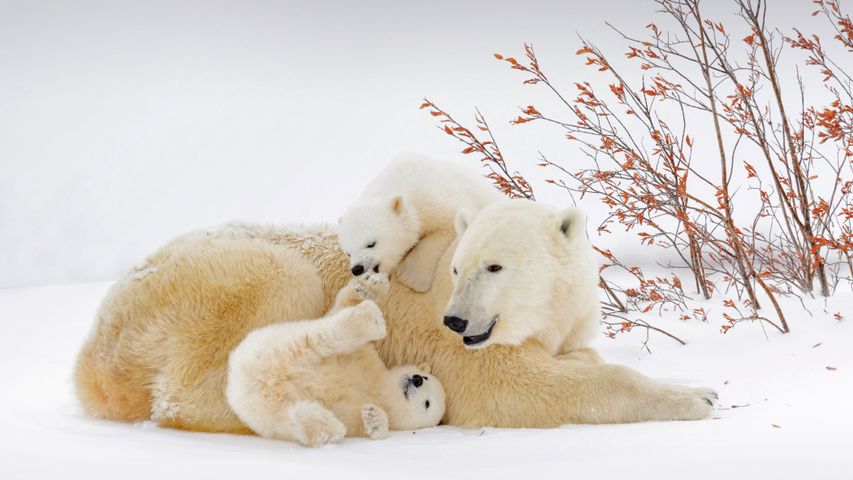
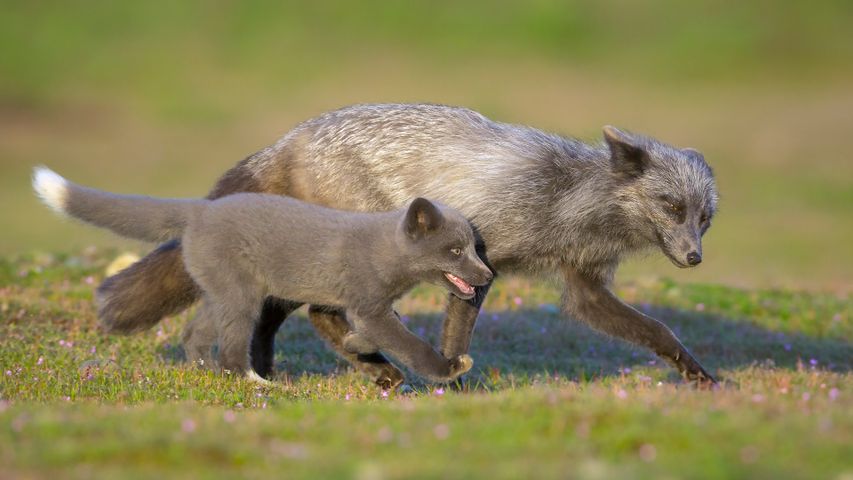 Red fox father and kit, Washington
Red fox father and kit, Washington
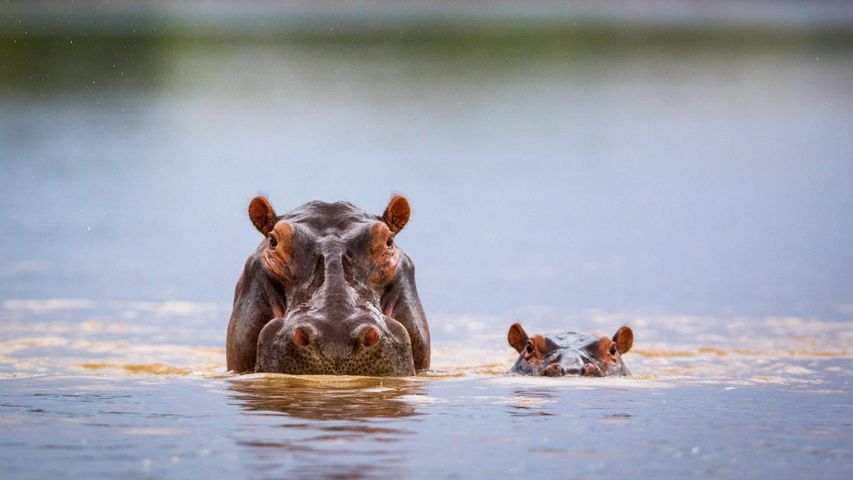 Hippopotamus mother and calf, South Luangwa National Park, Zambia
Hippopotamus mother and calf, South Luangwa National Park, Zambia
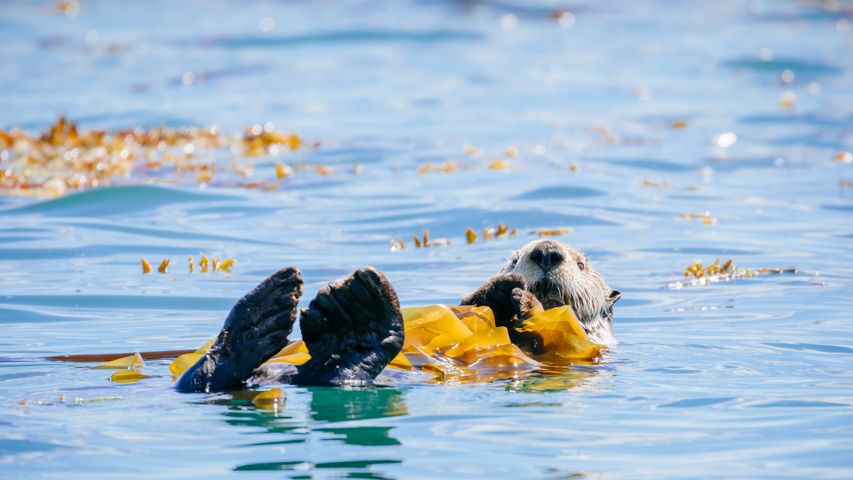 Sea otter in Bartlett Cove, Glacier Bay National Park and Preserve, Alaska
Sea otter in Bartlett Cove, Glacier Bay National Park and Preserve, Alaska
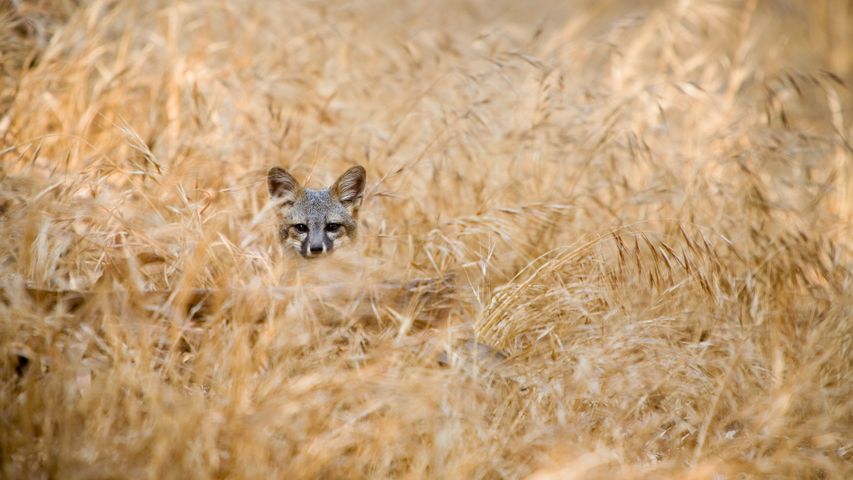 Island fox in Channel Islands National Park, California
Island fox in Channel Islands National Park, California
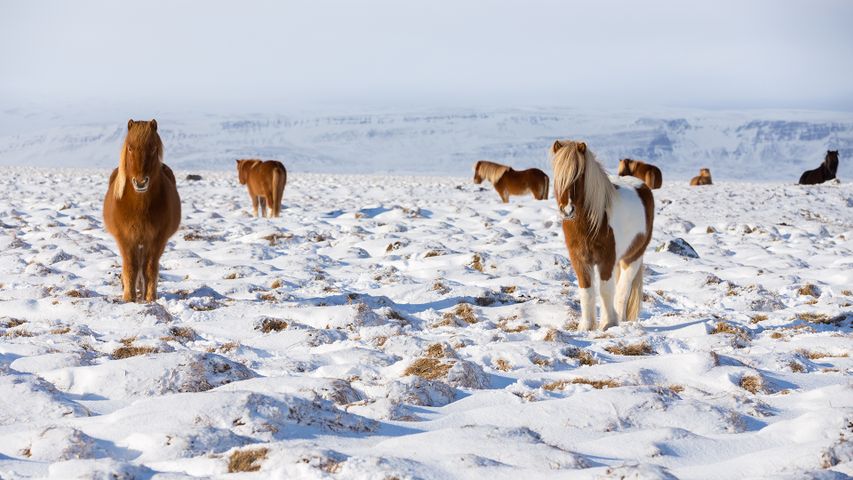 Icelandic horses standing in a field, Iceland
Icelandic horses standing in a field, Iceland
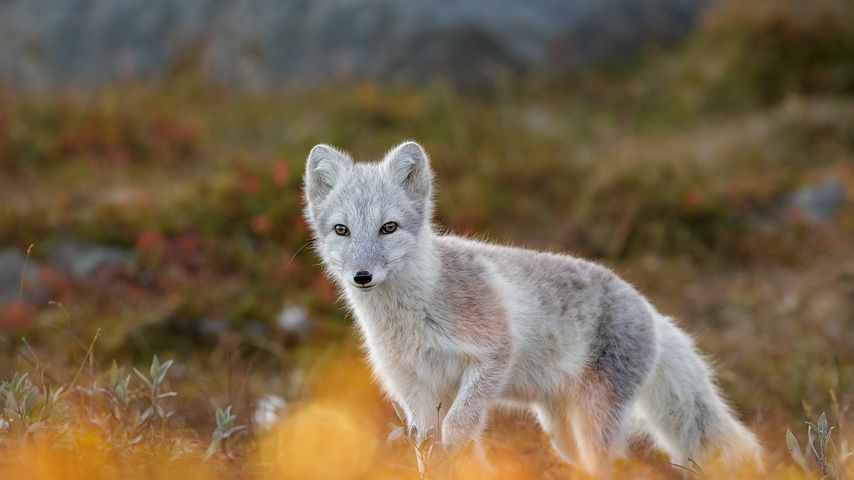 Arctic fox in Dovrefjell-Sunndalsfjella National Park, Norway
Arctic fox in Dovrefjell-Sunndalsfjella National Park, Norway
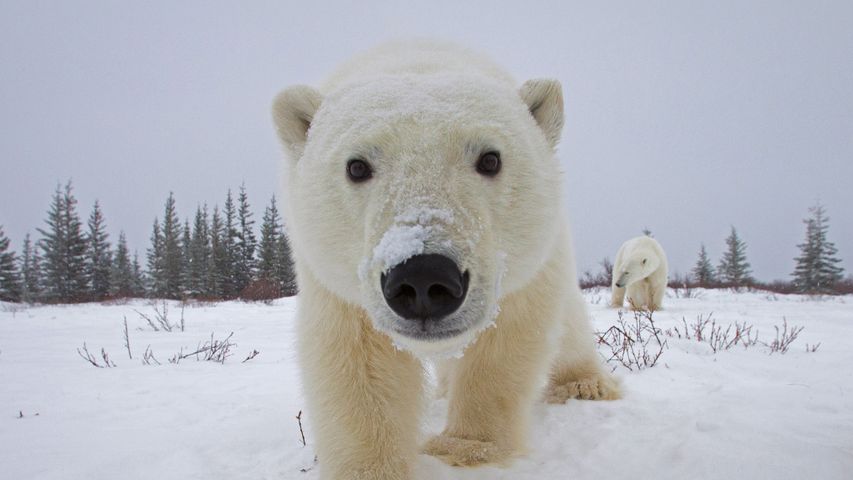 Polar bear investigating camera, Churchill, Manitoba, Canada
Polar bear investigating camera, Churchill, Manitoba, Canada
 Sunset at Golden Temple in Amritsar, India
Sunset at Golden Temple in Amritsar, India
